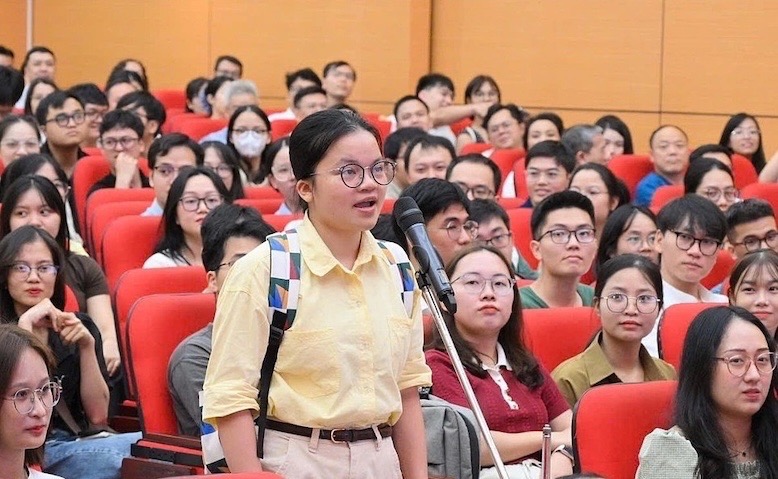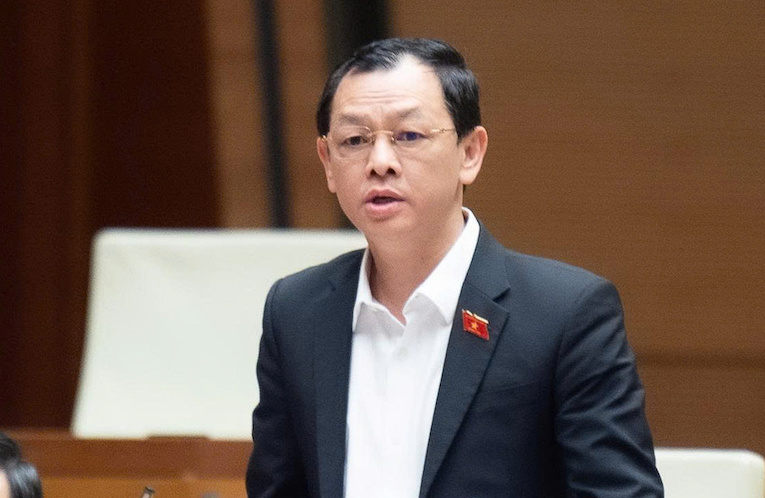Explanation from the Ministry of Education and Training heats up the National Assembly
In the report to National Assembly deputies, explaining and accepting opinions on the draft Law on Higher Education (amended), the Ministry of Education and Training explained the viewpoint on not classifying the boarding doctor (BSNT), specialist I (CKI), specialist II (CKII) programs within the national education system structure or the national qualifications framework.
The Ministry of Education and Training maintains its viewpoint: This is vocational training, not academic training. In the explanatory report sent to the National Assembly, the Ministry of Education and Training emphasized the nature of the MSc, CKI, and CKII programs as "training - practice" to accumulate practical capacity and recognize specialties.
According to this argument: The training goal focuses on proven professional skills in the hospital environment; Not an academic program to grant master's and doctoral degrees; Not restructured according to the standardized credit system, not requiring theses, theses, research products or scientific publications.
The Ministry of Education and Training warns that if the MSc, CKI, and CKII are converted into postgraduate degrees, it will skew the graduation system, disrupt the consistency of the national qualification framework; obscure the significance of master's and doctoral degrees; cause difficulties in recognizing degrees and converting international credits.
The Ministry also cited the model of the US, Germany, France, Australia, Singapore to prove: boarding is a stage of specialized practical training, culminating in a practice certificate, not an academic degree.
Regarding program design, currently, BSNT, CKI, CKII training programs are vocational training with practical capacity, structure unlike master's or doctoral training with priority subjects, core subjects, research skills, research products, new contributions.
In addition, the Ministry of Education and Training believes that medical training is closely linked to professional competence standards, professional ethics and patient safety - factors that can only be verified in a professional practice environment, under the supervision of professional councils and qualified medical facilities.
These requirements cannot replace the usual academic quality assurance mechanism such as program assessment or output standards or vice versa.
If we move specialized training programs in medicine to the postgraduate education system of national education, the assessment and assessment risks separating from the practical practice environment, leading to a decline in professionalism, training efficiency and potential risks.
On the other hand, classifying BSNT, BSCKI, CKII as postgraduate degrees such as master's and doctoral will create a precedent for other fields such as culture, arts, high-performance sports, security, national defense, aviation, maritime, police, court, prosecution, etc.

In Vietnam, postgraduate training in the health sector is being implemented in addition to master's and doctoral training, there are three forms: Level I Specialist (CKI), Level II Specialist (CKII) and Boarding Doctor (BSNT).
This model has been inherited from the French system and maintained for more than 50 years (BSCNT, CKI since 1972; BSCKII since 1974), managed by the Ministry of Health and trained by medical and pharmaceutical universities.
The medical industry reacted strongly: " boarding is the quintessence of the elite"
In response to the provisions in the draft Law on Higher Education (amended), National Assembly delegate Nguyen Tri Thuc - Deputy Minister of Health - said that considering BSNT, CKI, CKII training as a practice certificate is incorrect. He affirmed that they are the quintessence and great intellectual of the medical industry.
According to him, currently, after graduation, doctors will divide into two groups. The first group follows the teaching direction at universities, aiming for master's and doctoral degrees. The second group will work in hospitals, practice and study majors 1, 2 and inpatient.
The delegate affirmed that the boarding force is the quintessence of the medical industry. Therefore, considering CKI, CKII, and BSNT as training for practice certificates is completely incorrect.

Agreeing, delegate Tran Khanh Thu (Hung Yen delegation) said that the comments of the Ministry of Education and Training are unfair to the postgraduate training system in the health sector.
She believes that the structure of postgraduate training programs in health majors is completely consistent with academic training programs and fully complies with current training regulations.
"The health sector strongly recommends adding postgraduate training in the health sector to the national graduation certificate system so that more than 40,000 health workers have enough legal basis to recognize their trained degrees," the delegate suggested.
Health sector training cannot be put into a single framework
National Assembly delegate Le Thi Thanh Lam - Can Tho City National Assembly Delegation stated: In Article 24 on organizing the implementation of university programs, Clause 2 stipulates that the Minister of Education and Training approves training programs for teachers, law and health.
However, Ms. Le Thi Thanh Lam believes that health sectors are very specific because they are directly related to human life, require strict professional standards and must meet specific legal regulations when practicing.
From the above analysis, the delegate suggested that the Drafting Committee add a provision: the training program for health sectors approved by the Minister of Education and Training on the basis of coordination and professional assessment by the Ministry of Health.
"This regulation helps ensure the training program of all educational institutions is unified nationwide, in accordance with the hospital system and clinical ethics standards; avoiding the situation of widespread training, not close to professional requirements. At the same time, it ensures the consistency between the Law on Higher Education with the Law on Medical Examination and Treatment and the Law on Pharmacy", Ms. Le Thi Thanh Lam emphasized.
In addition, the delegate said that the addition of medical knowledge and skills in accordance with the scope of the industry as prescribed by the Minister of Health, with the participation of the Ministry of Health in the assessment, will help better control the quality of training, overcome loopholes in clinical practice and improve the quality of medical human resources before being granted a practice license.











